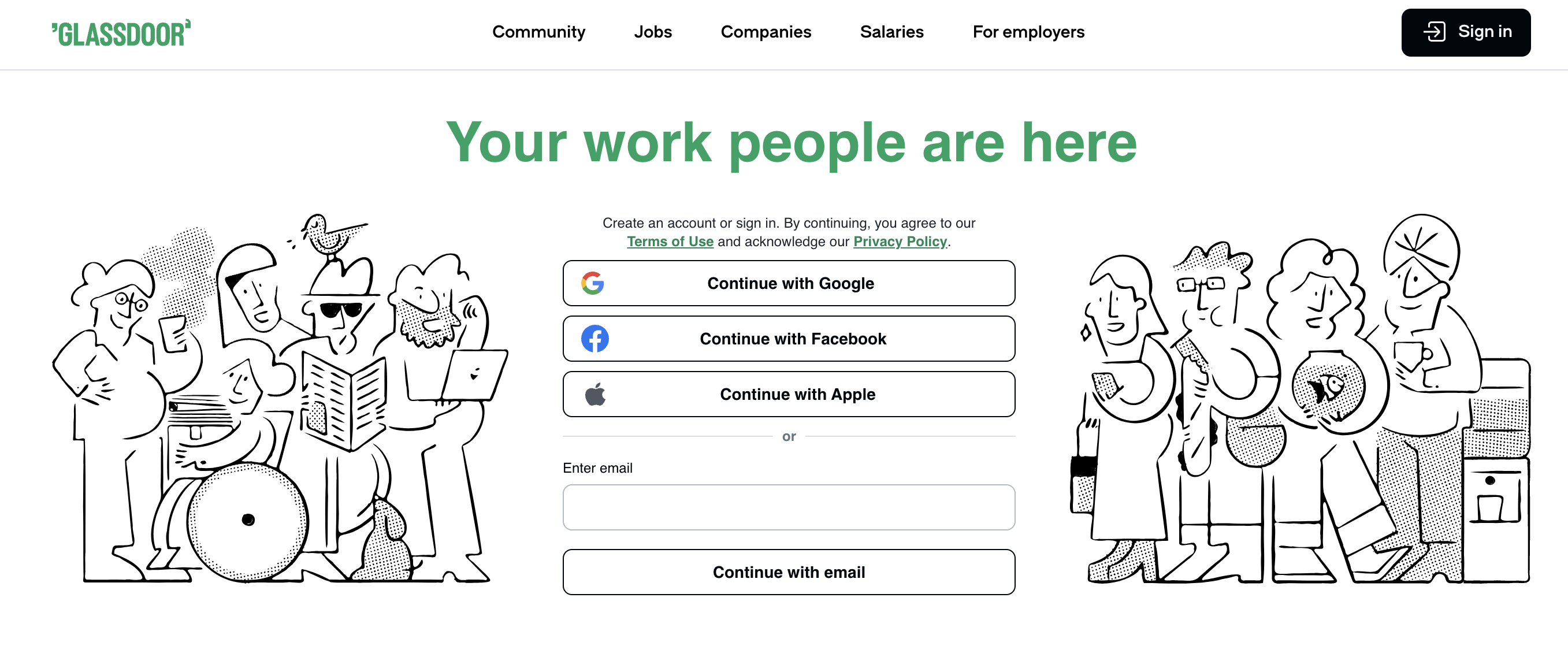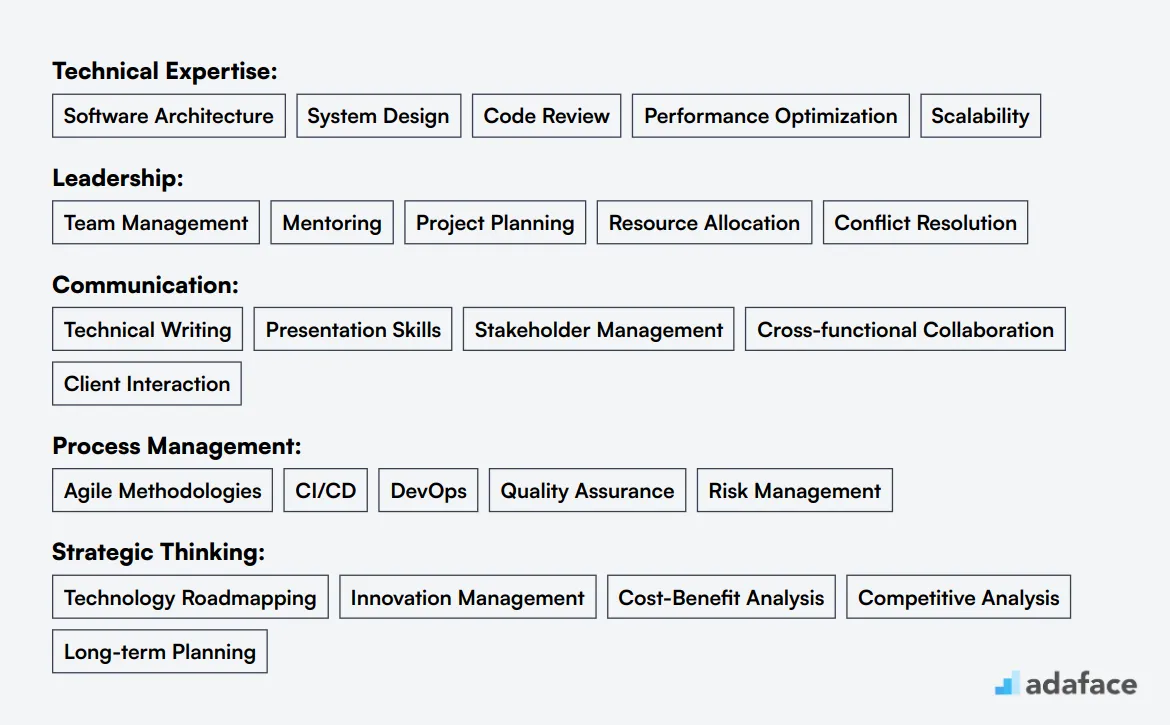Hiring a Lead Engineer is a critical task for any tech-driven company. These professionals are the backbone of development teams, steering projects and mentoring junior developers. However, many organizations stumble when it comes to identifying the right candidate who can balance technical expertise with leadership skills. The challenge lies in finding someone who not only excels in coding but also possesses the soft skills necessary to guide a team effectively.
This comprehensive guide will walk you through the process of hiring a Lead Engineer, from understanding the role to conducting effective interviews. We'll cover essential skills to look for, where to find top talent, and how to assess candidates accurately. Whether you're expanding your tech team or replacing a key player, this article will equip you with the knowledge to make an informed hiring decision.
Table of contents
What does a Lead Engineer do?
A Lead Engineer plays a key role in guiding technical teams to deliver high-quality projects. They act as a bridge between the technical team and management, ensuring everyone is aligned with the project goals.
Day-to-day tasks of a Lead Engineer include:
- Overseeing the technical team: They mentor team members, provide guidance, and help resolve technical challenges.
- Project management: They plan, design, and supervise projects, ensuring they meet timelines and budgets.
- Quality assurance: They review code and software architecture to guarantee that best practices are followed.
- Stakeholder communication: They interact with management and clients to provide updates and gather requirements.
For more insights into the skills required for this role, you can explore our Lead Engineer interview questions.
Lead Engineer Hiring Process
The Lead Engineer hiring process typically spans 6-8 weeks. Here's a quick overview of the timeline and steps involved:
- Craft and post a detailed job description
- Review resumes (1-2 weeks)
- Conduct initial screening calls (1 week)
- Administer technical assessments (1 week)
- Schedule in-depth interviews (1-2 weeks)
- Evaluate candidates and make a decision (1 week)
- Extend offer and negotiate (1 week)
This process allows for a thorough evaluation of candidates' technical skills, leadership abilities, and cultural fit. In the following sections, we'll dive deeper into each step, providing checklists and resources to help you find the ideal Lead Engineer for your team.
Skills and qualifications to look for in a Lead Engineer
Building the right candidate profile for a Lead Engineer can be tricky. What's important for one company might just be a nice-to-have for another. A clear distinction between required skills and those that are preferred can prevent a mismatch later on.
To start, focus on the non-negotiables. These typically include experience in software engineering leadership roles, proficiency in at least one major programming language, and a proven track record of leading teams. Equally important are skills in software architecture and system design.
On the other hand, preferred qualifications might enhance the profile but aren't deal-breakers. Experience with cloud platforms, familiarity with microservices architecture, and agile methodologies fall into this category. For a deeper understanding of aligning skills with roles, explore our skill mapping resources.
| Required skills and qualifications | Preferred skills and qualifications |
|---|---|
| 5+ years of experience in software engineering leadership roles | Experience with cloud platforms (AWS, Azure, or GCP) |
| Strong proficiency in at least one major programming language (e.g., Java, Python, C++) | Knowledge of agile methodologies and DevOps practices |
| Experience with software architecture and system design | Familiarity with microservices architecture |
| Proven track record of leading and mentoring engineering teams | Experience with large-scale distributed systems |
| Excellent problem-solving and communication skills | Contribution to open-source projects |
How to write a Lead Engineer job description?
Once you have a candidate profile ready, the next step is to capture that information in the job description to attract the right candidates. An effective Lead Engineer job description should provide clarity and appeal to the top talent in the industry.
- Highlight key responsibilities and impact: Clearly outline the primary responsibilities of the Lead Engineer and how their contributions will shape the team and projects. This helps candidates visualize their potential impact on the organization.
- Balance technical skills with soft skills: While it’s important to list technical qualifications such as experience with coding languages and systems architecture, don’t overlook the necessity of soft skills like leadership and communication. A strong balance attracts candidates who can excel both technically and managerially.
- Showcase your company’s unique value proposition: Share what makes your company an exciting place to work. Whether it’s innovative projects, company culture, or opportunities for growth, these insights can entice high-caliber candidates to apply. For example, you can refer to a detailed Lead Engineer job description to get inspired.
Where to Find Top-Notch Lead Engineers
Now that you have a well-crafted job description, it's time to post it on job listing sites to attract qualified candidates. The right platform can make a big difference in finding the perfect Lead Engineer for your team. Let's explore some top options to help you in your search.
LinkedIn Jobs
Ideal for posting full-time lead engineer positions. Offers extensive reach and allows detailed job descriptions with company profiles.

Indeed
Excellent for posting a wide range of lead engineer positions. Provides a large candidate pool and easy application process.

Glassdoor for Employers
Great for attracting top talent with company reviews and salary information. Allows detailed job postings for lead engineers.

For more specialized needs, consider platforms like Toptal for freelance talent, AngelList for startup-focused engineers, or Stack Overflow Talent to reach active members of the developer community. These sites cater to specific hiring scenarios and can be valuable additions to your recruitment toolkit. Remember, the best platform often depends on your specific requirements and the type of Lead Engineer you're seeking.
How to Screen Lead Engineer Resumes?
Resume screening helps to efficiently narrow down the applicant pool, allowing recruiters to focus on candidates who meet the basic qualifications for a Lead Engineer role. This step is essential given the high volume of applications and the need to find candidates who align with your team's requirements.

To start, familiarize yourself with the main keywords associated with a Lead Engineer position. Look for terms like 'software architecture', 'system design', 'team management', and 'cloud platforms'. When glancing through resumes, ensure these must-have skills and experiences are present to shortlist candidates for further consideration.
Using AI tools like ChatGPT can make the resume screening process even more streamlined. By providing the AI with a list of important keywords and resumes to evaluate, it can quickly pinpoint candidates who meet your criteria. This approach allows you to focus on interacting with the most promising applicants.
Here's an example prompt you might use:
INPUT: Resumes
OUTPUT: For each resume, provide the following information:
- Email id
- Name
- Matching keywords
- Score (out of 10 based on keywords matched)
- Recommendation (detailed recommendation of whether to shortlist this candidate or not)
- Shortlist (Yes, No or Maybe)
RULES:
- If unsure about a candidate's fit, put them as Maybe instead of No
- Keep recommendation concise.
KEYWORDS DATA:
- Technical Leadership
- Strategic Vision
- People Management
- Software Architecture
- Cloud Platforms (AWS, Azure, GCP)
For further guidance on the skills required for a Lead Engineer role, explore our blog post and interview questions to help refine your screening process.
Which skills tests should you use to assess Lead Engineers?
When hiring a Lead Engineer, it's important to assess their technical abilities thoroughly to ensure they can handle the challenges of the role. Skills tests are recommended because they provide an objective measure of a candidate's proficiency and problem-solving skills, allowing you to make informed hiring decisions.
Software Engineering Online Test: This test evaluates a candidate's knowledge of software engineering principles, design patterns, and coding practices. It's designed to assess whether a Lead Engineer can handle complex software projects from conception to deployment.
Backend Engineer Assessment Test: By using this test, you can identify candidates who possess strong backend development skills, including database management, API integration, and server programming. This is crucial for roles that require maintaining and scaling backend systems.
Problem-Solving Test: Lead Engineers often face unique challenges that require innovative solutions. This test gauges a candidate's analytical thinking and ability to solve complex problems effectively, which are key traits for leadership roles in engineering.
Cloud Computing Online Test: With the increasing reliance on cloud-based solutions, it's important for Lead Engineers to have a strong understanding of cloud computing. This test assesses their ability to manage and optimize cloud resources, ensuring scalability and security for your systems.
DevOps Online Test: As DevOps practices become more integral to software development, this test helps you determine a candidate's familiarity with DevOps concepts and tools, which is essential for ensuring smooth operations and continuous delivery in your organization.
Structuring Interviews for Hiring Lead Engineers
After candidates successfully pass the skills tests, the next step involves technical interviews where their hard skills are put to the test. Skills tests are effective for filtering out unfit candidates but may not identify the best candidates for the role. This is why technical interviews are crucial, as they provide a platform to assess candidates' problem-solving abilities and technical expertise in a real-world context.
To effectively gauge a candidate's suitability, consider asking questions like: 1) "How do you approach system design for a new project?" to assess their architectural thinking, 2) "Describe a challenging technical problem you faced and how you resolved it," to understand their problem-solving skills, 3) "How do you mentor junior engineers?" which can reveal their leadership abilities, 4) "What strategies do you use for code quality assurance?" to evaluate their attention to detail, and 5) "How do you stay updated with the latest technologies?" to glean insights into their passion for learning. Taking inspiration from lead engineer interview questions can help you tailor the interview to focus on what's most important for your organization.
What's the Cost of Hiring a Lead Engineer?
Hiring a Lead Engineer can be a significant investment for companies. According to recent data, the average salary for a Lead Engineer in the United States is approximately $138,131. However, this figure can vary widely based on factors such as location, industry, and experience level.
The salary range for Lead Engineers typically spans from $87,101 to $197,751. It's worth noting that tech hubs like New York and Sunnyvale often offer higher salaries due to increased demand and cost of living. When budgeting for a Lead Engineer, companies should also factor in additional costs such as benefits, bonuses, and potential relocation expenses.
Lead Engineer Salary in the United States
The average salary for a Lead Engineer in the United States is around $138,131. Salaries can range widely depending on the location and specific demands of the role, with figures spanning from $87,101 to as high as $197,751. Notably, cities like New York and Sunnyvale show some of the highest average salaries, reflecting the tech-driven demand in these areas.

Lead Engineer Salary in the United Kingdom
The average salary for Lead Engineers in the United Kingdom ranges from £60,000 to £110,000 per year. This variation depends on factors such as location, industry, company size, and individual experience.
In London, salaries tend to be higher, with Lead Engineers often earning between £80,000 and £130,000 annually. Outside of London, the range typically falls between £55,000 and £95,000 per year.

What's the difference between a Lead Software Engineer and a Lead DevOps Engineer?
While both roles play critical parts in the tech ecosystem, many people confuse a Lead Software Engineer with a Lead DevOps Engineer due to overlapping responsibilities in product delivery. However, the two positions focus on different aspects of the development lifecycle.
A Lead Software Engineer primarily concentrates on software development and architecture. Their key skills include programming, system design, and conducting code reviews. They frequently collaborate with developers and product managers, where their performance is measured by code quality and feature delivery.
On the other hand, a Lead DevOps Engineer focuses on infrastructure and deployment. They are skilled in automation, CI/CD, and cloud technologies, working closely with operations and security teams. Their success is gauged through metrics like system uptime and deployment frequency, emphasizing scalability and system reliability.
| Lead Software Engineer | Lead DevOps Engineer | |
|---|---|---|
| Primary Focus | Software development and architecture | Infrastructure and deployment |
| Key Skills | Programming, system design, code review | Automation, CI/CD, cloud technologies |
| Tools | IDEs, version control, testing frameworks | Kubernetes, Docker, Terraform, monitoring tools |
| Team Collaboration | Developers, product managers | Operations, security teams |
| Performance Metrics | Code quality, feature delivery | System uptime, deployment frequency |
| Problem-Solving Focus | Application logic and user experience | Scalability and system reliability |
| Certifications | Language-specific (e.g., Java, Python) | Cloud platforms (AWS, Azure, GCP) |
| Daily Responsibilities | Code reviews, architecture decisions | Infrastructure management, deployment automation |
What are the ranks of Lead Engineers?
In the tech industry, roles can often overlap, making it hard to distinguish one from another. This is especially true for engineering roles, where responsibilities can vary greatly depending on the company and project. Here's a breakdown of the typical ranks within lead engineering, which should help clarify the hierarchy.
- Junior Engineer: Typically an entry-level position, junior engineers work under the guidance of more experienced engineers. They focus on learning and applying engineering practices and principles while gaining hands-on experience.
- Mid-level Engineer: With a few years of experience, mid-level engineers handle more complex tasks and take on additional responsibilities. They often collaborate with team members and provide support to junior engineers.
- Senior Engineer: A seasoned professional, the senior engineer takes on leadership roles in projects and mentors junior and mid-level engineers. They are crucial in decision-making and often contribute to strategic planning.
- Lead Engineer: At this rank, the lead engineer oversees entire projects or teams, ensuring that engineering goals align with company objectives. They play a key role in project management and have a deep understanding of both technical and business aspects of the projects.
- Principal Engineer: A principal engineer is an expert in their field and often has a leadership role in defining the technology strategy. They provide visionary guidance and tackle the most complex engineering challenges.
For a detailed lead engineer job description, you can explore more about the roles and responsibilities typically involved.
Hire the Best Lead Engineers for Your Team
Throughout this guide, we've explored everything from understanding the role of a Lead Engineer to crafting the perfect job description and structuring interviews. We've also discussed where to find talented candidates and how to screen resumes effectively. By now, you should have a comprehensive understanding of the hiring process.
If there's one key takeaway, it's the importance of using the right job descriptions and skills tests to ensure an accurate hiring process. Leveraging tools like a software engineering online test can provide deeper insights into candidates' capabilities. Aligning your hiring strategies with these techniques will significantly boost your chances of finding the ideal Lead Engineer for your team.
Software Engineering Online Test
FAQs
Key skills for a Lead Engineer include strong technical expertise, leadership abilities, project management skills, effective communication, problem-solving capabilities, and the ability to mentor junior developers. They should also have a deep understanding of software development methodologies and be able to make high-level architectural decisions.
To write an effective job description, clearly outline the responsibilities, required technical skills, and leadership expectations. Include information about your company culture, projects, and growth opportunities. Be specific about the technologies used and the level of experience required. You can find a detailed guide and template in our Lead Engineer job description article.
The best way to assess a Lead Engineer's technical skills is through a combination of methods. Use coding tests to evaluate their programming abilities, conduct technical interviews to discuss past projects and problem-solving approaches, and consider giving them a small project or case study to work on. Additionally, software engineering online tests can provide a comprehensive evaluation of their skills.
To evaluate leadership potential, use behavioral interview questions that focus on past experiences leading teams, resolving conflicts, and mentoring others. Look for candidates who can articulate their vision for team development and project management. Consider using leadership assessment tools and seek input from potential team members during the interview process.
Qualified Lead Engineer candidates can be found through various channels. Utilize professional networking sites like LinkedIn, attend tech conferences and meetups, engage with online developer communities, and leverage employee referrals. Partnering with specialized tech recruiters or using job boards focused on senior tech roles can also be effective. Don't forget to showcase your company culture to attract passive candidates.
The hiring process for a Lead Engineer typically takes 4-8 weeks, depending on your company's needs and the candidate pool. It's important to move efficiently to secure top talent, but also to be thorough in your assessment. Plan for multiple interview rounds, including technical assessments and team interactions, to ensure a comprehensive evaluation of each candidate.
Watch out for candidates who lack clear communication skills, show resistance to new technologies or methodologies, or have a history of short-term positions without growth. Be cautious of those who can't provide concrete examples of leadership experiences or struggle to explain complex technical concepts simply. Also, be wary of candidates who show little interest in your company's goals or team dynamics.

40 min skill tests.
No trick questions.
Accurate shortlisting.
We make it easy for you to find the best candidates in your pipeline with a 40 min skills test.
Try for freeRelated posts
Free resources



